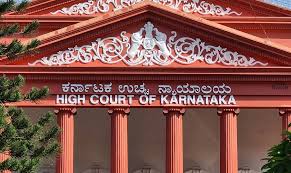Social media giant X has announced its intention to appeal a recent order by the Karnataka High Court, which directed the platform to comply with government-issued takedown notices. The ruling raises profound questions about online expression, corporate responsibility, and the limits of foreign legal frameworks in India.
X expressed deep concern over the implications of the decision, arguing that it could empower millions of police officers to issue arbitrary content removal requests. In an official statement, the company said:
“We are deeply concerned by the recent order from Karnataka Court in India, which will allow millions of police officers to issue arbitrary takedown orders. We will appeal this order to defend free expression.”
High Court’s Rationale
The Karnataka High Court dismissed X’s petitions, which challenged the government’s instructions to block certain accounts and content. Justices on the bench underscored that reliance on American legal standards is inapplicable within India.
“American jurisprudence cannot be transported to the Indian judicial thought process,” the court noted.
Acknowledging the rapid evolution of digital technologies, the court emphasized that regulatory frameworks must adapt accordingly. The bench highlighted the 2021 Information Technology Rules, stressing that they “demand their own interpretative frame.”
The court further asserted that no social media platform could claim exemption from Indian law, declaring:
“Indian marketplaces cannot be treated as a playground. Social media companies cannot be allowed to work unregulated in India.”
Freedom of Expression and Constitutional Limits
The ruling clarified the scope of Article 19 of the Indian Constitution, which guarantees freedom of speech and expression. The bench emphasized that these protections are reserved for Indian citizens, stating:
“Article 19 remains the charter of rights for citizens only. The protective embrace of Article 19 cannot be invoked by those who are not citizens.”
Legal experts say the decision marks a crucial step in defining the boundaries of digital expression in India while reinforcing the government’s oversight responsibilities.
Potential Implications
- Analysts suggest that the ruling may complicate operations for global social media platforms in India. Companies will need to align their content moderation and takedown policies more closely with local laws and governmental directives.
- Some experts argue that the order could enhance accountability and transparency in the digital space, while simultaneously raising questions about corporate autonomy and user rights.
- “Oversight of social media is the need of the hour in India. This decision not only defines the rules for platforms but safeguards the interests of citizens,” said a senior digital law expert.
Conclusion:
The Karnataka High Court’s ruling represents a pivotal moment in India’s digital landscape. It delineates corporate responsibilities, underscores the limits of foreign legal frameworks, and reaffirms the constitutional boundaries of freedom of expression, highlighting the delicate balance between regulation, rights, and digital innovation.


